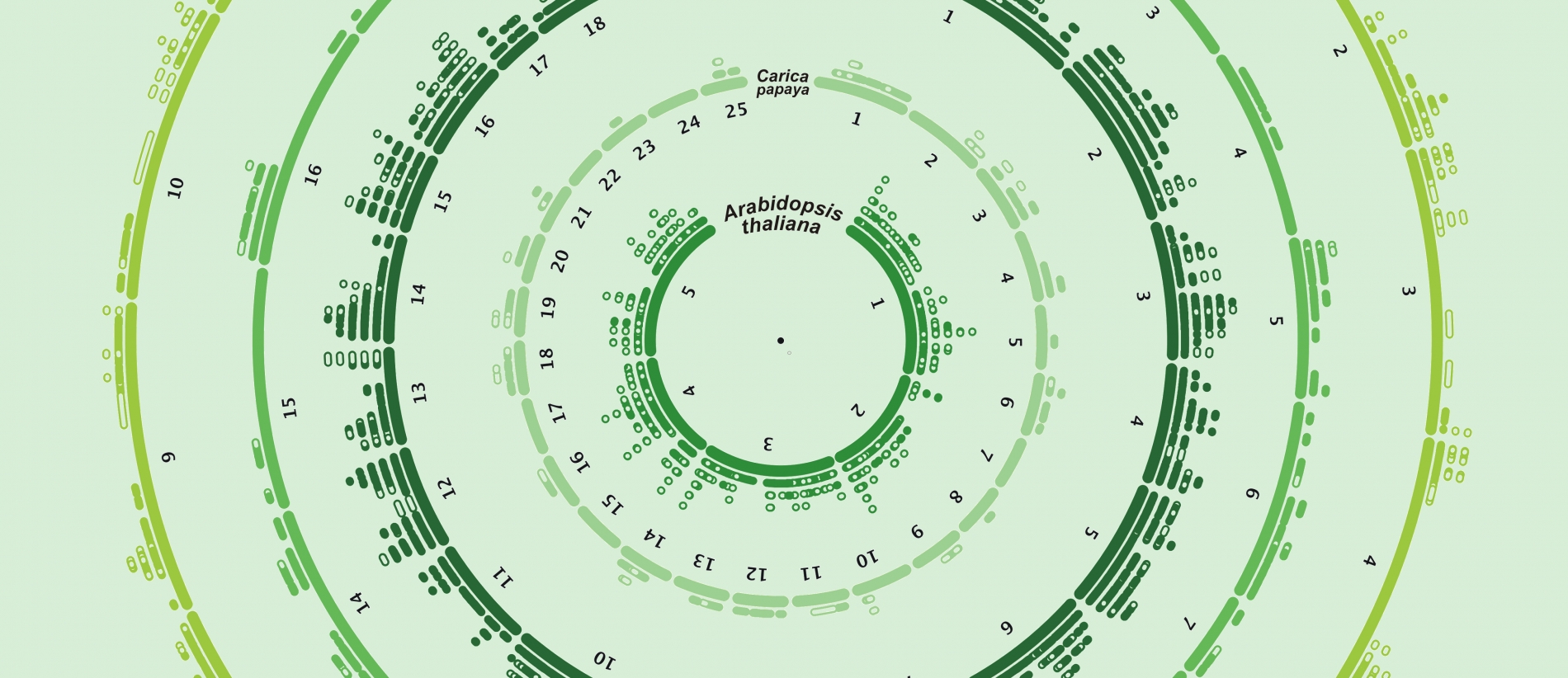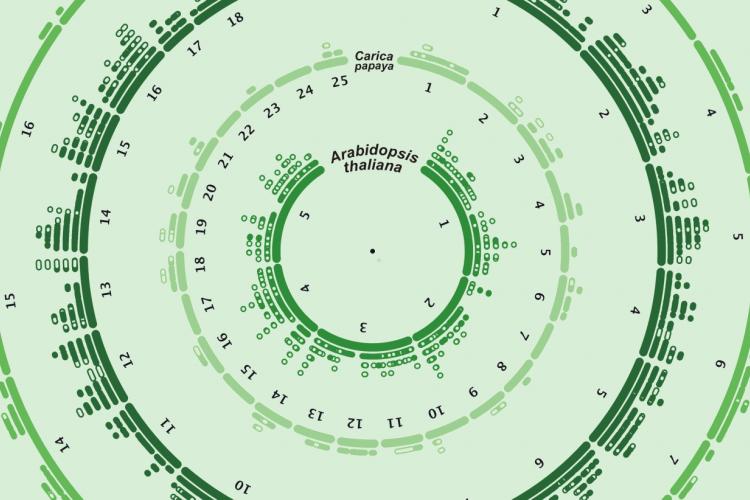Genome Projects
Because of our unique and long-standing expertise in genome annotation, as well as our expertise in documenting ancient whole genome duplication (WGD) events, our lab has been, and still is, involved in many international genome projects. For instance, some of the genome projects we have been heavily involved in were those of the poplar tree Populus trichocarpa (published in Science), the grape Vitis vinifera (PLoS One), Arabidopsis lyrata (Nature Genetics), the apple tree Malus domestica (Nature Genetics), Eucalyptus grandis (Nature), Solanum lycopersicum (Nature), the orchid Phalaenopsis equestris (Nature Genetics), the orchid Apostasia shenzhenica (Nature), the seagrass Zostera marina (Nature), the olive tree Olea europaea var. sylvestris (PNAS), Nymphaea colorata (Nature), the moss Physcomitrella patens (Science), the fungi Laccaria bicolor (Nature) and Pichia pastoris (Nature Biotechnology), the unicellular algae Ostreococcus spp. (PNAS) and Micromonas spp. (Science), the multicellular sea lettuce Ulva mutabilis (Current Biology), the diatom Phaeodactylum tricornutum (Nature), the brown alga Ectocarpus siliculosus (Nature), the spider mite Tetranychus urticae (Nature), the white fonio Digitaria exilis (GigaScience), the shea tree Vitellaria paradoxa (Frontiers in Plant Science), the Amaranthus cruentus (the Plant Journal), the drumstick tree Moringa oleifera (the Plant Genome), the king protea Protea cynaroides (the Plant Journal), and the black grass Alopecurus myosuroides (PNAS). Moreover, we were involved in the genome project of four seagrasses Zostera marina, Cymodocea nodosa, Posidonia oceanica and Thalassia testudinum under the Marine Angiosperm Genome Initiative (MAGI).
Currently, we are involved in analyzing the genomes of many more plant species, amongst which several ornamental plants and crops. We are also currently involved in the annotation of several of the African Orphan Crop genomes.
In addition, we are developing several tools to help in the process of analyzing genomes. One such tool is ORCAE, an online genome annotation resource offering users the necessary tools and information to validate and correct gene annotations.
Several other programs have been developed in our lab for the downstream analysis of genomes. For example, we have developed the program wgd, a comprehensive suite of tools for inferring and timing ancient WGDs.

